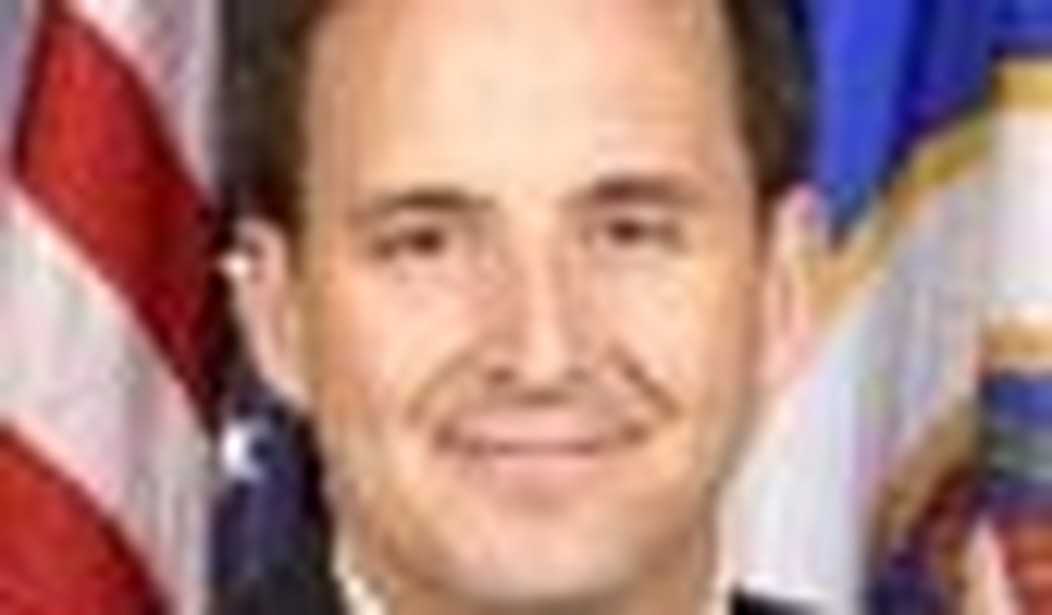It’s 2009 and the 2012 presidential contest is underway, a full three years early — too early if you’re a typical person who hears 2012 and thinks of the apocalypse, and not early enough if you’re a political nerd who gets the excitement from elections that he should be getting from football games. Obviously, I fall into the latter category. Sports always seemed to me like an inconsequential exercise in watching big guys run, fall down, and throw stuff.
Give it up for Governor Tim Pawlenty of Minnesota, also known in his true ghetto fashion as T-Paw, who telegraphed his intentions by starting his Freedom First PAC while everyone else plays coy. This move was hardly unexpected, as he had declined to run for a third term as governor, gave a well-received speech at the Values Voters Summit, and appeared so often as a McCain surrogate during the last election that sometimes I thought he was the one running for president. After McCain’s defeat, Pawlenty appeared anywhere and everywhere, including several appearances on MSNBC, seen as the likable conservative that even Rachel Maddow didn’t mind conversing with.
Pawlenty was smart to make an obvious move toward running for president early. As time goes on, people will pay more and more attention to every step that more high-profile potential candidates like Palin, Romney, Gingrich, and Huckabee take. He had to do something so that his name would be mentioned in every 2012 discussion — and he succeeded, even scoring the top headline on the Drudge Report. Now his every move will be closely followed, generating a steady stream of coverage that will be necessary for him to get his name recognition up.
He also enters the field with another advantage: he hasn’t run for president or vice president before. Any ten-second look at a Republican blog discussing 2012 shows there’s a huge amount of fanatics and haters of each major candidate. They have a fan base, but also a group dedicated to driving up their negatives. By not having a caricature pre-established by the media or other candidates, Pawlenty has more freedom to craft his own image. And that will be one of a successful, evangelical governor who was reelected in a blue state during the Democratic tide of 2006, who managed to balance the budget and achieve a surplus without raising taxes.
It’s a wonderful resume, but he’ll still have trouble exciting enough people to create a firm base. He isn’t an inspiring speaker and he doesn’t have a defining issue or character trait. Romney is the successful businessman who can fix the economy, Huckabee is the witty ex-preacher that supports the FairTax, and Palin is the exciting conservative babe. These are just generalizations, but there can be no doubt that these potential candidates have specific features that draw people to them. Pawlenty will cast himself as a successful conservative, but how will that give him special significance over anyone else?
Pawlenty appears to be preparing to stake out his ground on health care, challenging an issue that Romney had hoped to own. He has already gone after Romney’s health care plan while he was governor of Massachusetts, and with some assistance from Huckabeee’s own criticism of it, Pawlenty might be able to frame the debate over the issue as a contest between his ideas and Romney’s, provided that Governor Bobby Jindal doesn’t run. While he’ll get some points on this, I think Pawlenty is most likely to win by becoming the consensus candidate. He may not have the most fanatical or largest base of support, but he also won’t have a large group tearing him down like the others will.
Basically, Pawlenty may win like McCain did by being an acceptable second choice to enough people that his star rises as the others’ fall. After all, being the front-runner early on is a dangerous spot to be in as the other candidates take aim at you. By taking a little bit of evangelical support from Palin and Huckabee here, a little bit of moderate support there, and a little bit of those looking for an experienced economy-fixer, he can create a significant pool of support by taking a little piece out of each ideological pie. However, as this support slowly builds and the stars of the front-runners dwindle, there will be attacks on him.
When he talks about not raising taxes, they can point out that he raised “state fees” on things like cigarettes, which technically aren’t taxes because you aren’t forced to buy the product with the additional price tag. When he makes the electability argument, Romney can point to winning in Massachusetts and others can mention how Pawlenty won reelection in 2006 by less than two percent. However, given the negatives and vulnerabilities of Romney, Huckabee, Palin, and Gingrich, they’ll have a tough time making the electability argument against Pawlenty.
Fifty-five percent of those living in Minnesota don’t want Pawlenty to run for president, but at the same time, one-fourth say that there is a “good chance” they’d vote for him, with another fourth saying there is “some chance” of him receiving their support. Only 42% rule out voting for him, a remarkable feat in a blue state. He’s also had stable poll numbers despite the overwhelmingly negative attitude against those currently in office. Winning reelection in 2006, albeit by the thinnest of thin margins, in a blue state when the attitude against Republicans was at its worst in decades — and then holding a 59% approval rating for the year, 54% the following year, and 49% now in today’s political environment — is mighty impressive.
And so the race begins. T-Paw is in, absent a major scandal. He isn’t a front-runner; nor is he a long shot. He isn’t the candidate that most excites GOP primary voters, but neither is he unlikable. Sometimes being mediocre can be a winning asset.









Join the conversation as a VIP Member